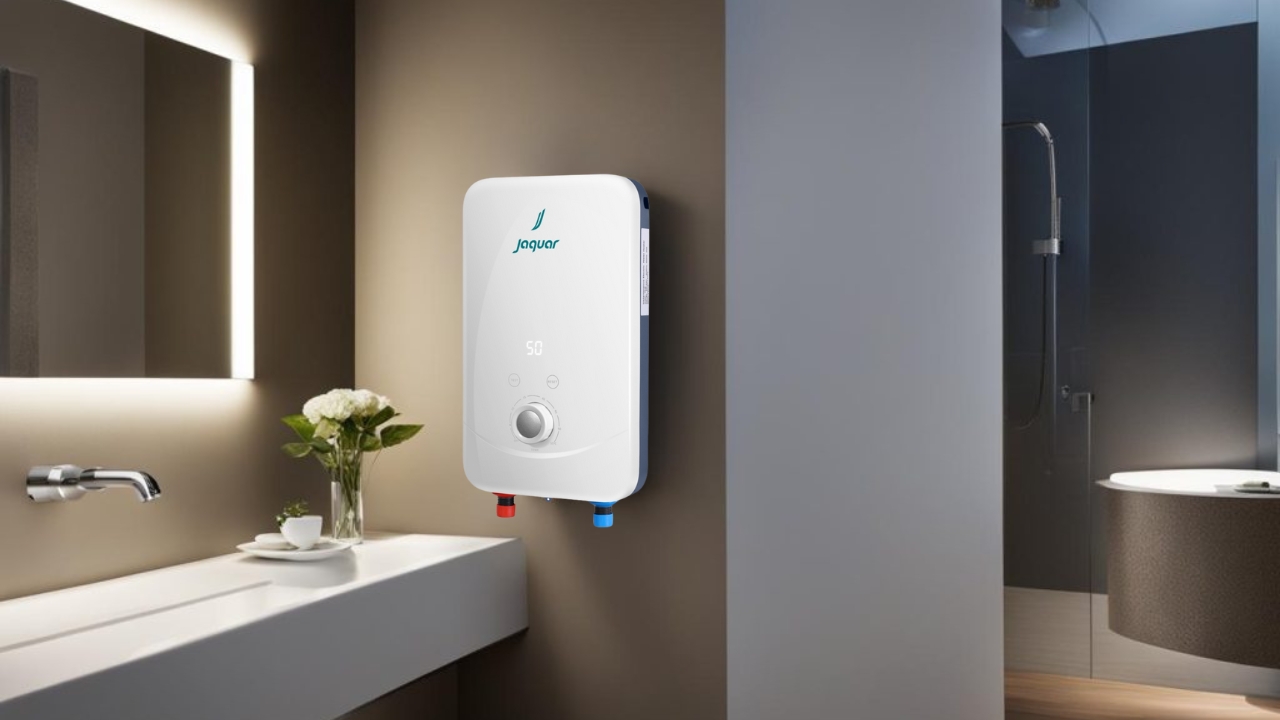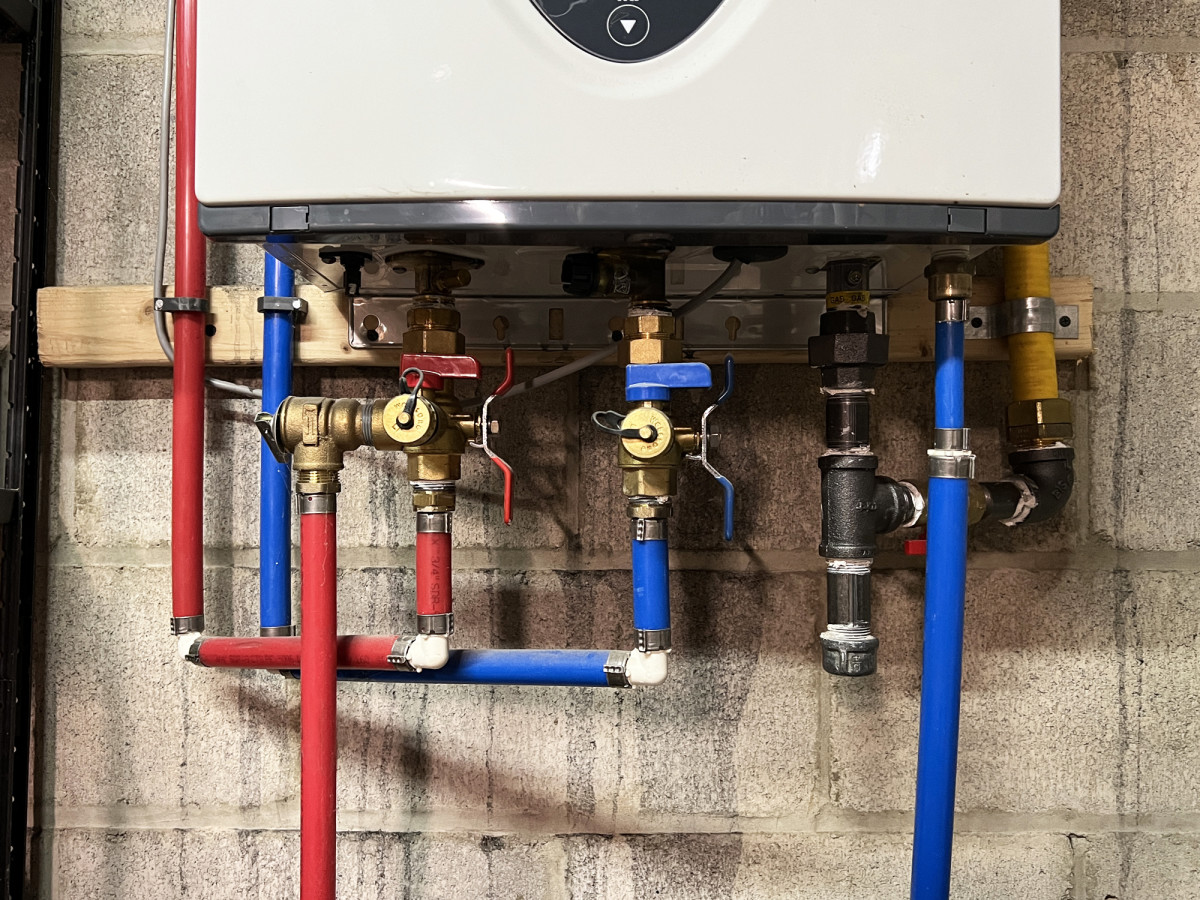We have stumbled on this great article involving Six Benefits of a Tankless Hot Water Heater down the page on the web and felt it made perfect sense to relate it with you over here.

In a world where convenience and effectiveness reign supreme, it's not a surprise that homeowners are continuously in search of smarter methods to manage their home's power usage and convenience. One development that has gradually gained popularity is the tankless hot water heater. But just what makes these systems stand apart from the traditional tank-based models a lot of us matured with? Let's dive in and check out the benefits of tankless hot water heater, aiding you determine if it's time to make the switch in your house.
Intro
Photo this: you enter the shower after a long day, anticipating a relaxing cascade of warm water, just to be welcomed by icy beads because the last person utilized everything up. Noise acquainted? Traditional hot water heater store a set amount of hot water, implying you go to the mercy of that tank's supply. Tankless systems, on the other hand, heat water as needed. Say goodbye to going out mid-shower, no more wrestling with routines simply to guarantee hot water is available.
Recognizing Tankless Hot Water Heater
What Are Tankless Water Heaters?
Tankless water heaters, often called on-demand or immediate water heaters, give hot water only as it's required. As opposed to saving gallons of pre-heated water, these devices kick into activity the moment you activate the tap. Water travels through a heat exchanger, heating up in real-time, indicating you get a nonstop circulation of hot water without the demand for a big container sitting lazily by.
Just how Do They Differ from Standard Systems?
Standard heaters hold a tank of hot water, using energy to keep that tank at a regular temperature. Tankless systems get rid of the standing supply, cutting down on wasted energy and the cumbersome impact of a large cylinder. Essentially, you're updating from a "accumulation" attitude to a "made-to-order" method.
Usual Types of Tankless Devices
Tankless hot water heater typically come in 2 selections: gas and electric. Gas designs often tend to supply higher flow prices, suitable for bigger houses, while electrical models usually offer smaller homes and are normally easier to install. Furthermore, some systems are created for point-of-use (serving one component) while others can handle the entire home's warm water needs.
Trick Advantages of Tankless Hot Water Heater
Energy Performance and Price Financial Savings
Say goodbye to heating up a giant container's worth of water and maintaining it cozy all day. Tankless heaters minimize standby energy losses, which can decrease utility costs. While the preliminary cost may be higher, the long-lasting financial savings often validate the investment.
3. Space-Saving Design
If your home is short on storage, eliminating the large container maximizes beneficial space. Tankless devices are portable and can typically be mounted on wall surfaces, tucked away in corners, or installed in tight utility storage rooms without having all to oneself the entire space.
4. Longer Life expectancy
A well-kept tankless hot water heater can outlive its tank-based relative. Typical tanks could last 10-15 years, while tankless models can keep chugging along for 20 years or even more, making them a strong investment in time.
1. Endless Warm Water Supply
Ever before had to set up showers so everyone gets their reasonable share of warm water? With tankless, that becomes a thing of the past. As long as the heating unit's flow capacity isn't surpassed, you can take back-to-back showers without developing into a popsicle.
5. Improved Water High Quality
Saving water in a tank can often lead to sediment buildup or a slightly "off" preference. With tankless systems, fresh water is warmed right away, reducing the chances of sediment accumulation and potentially offering cleaner-tasting water.
Considerations Before Changing
Though the benefits are engaging, it's smart to take into consideration a couple of elements before fully devoting.
Reviewing Your Home's Water Usage Patterns
If your home at the same time uses numerous components with high hot water need, ensure the device's flow rate fulfills your requirements. Knowing your use patterns assists you pick the appropriate size and sort of tankless heating system.
Upkeep and Care Tips
Tankless systems are reasonably low upkeep, however they aren't set-it-and-forget-it appliances.
Routine Cleaning and Descaling
Hard water minerals can accumulate in the heat exchanger, influencing efficiency. Normal descaling (commonly advised each year) maintains the unit running at peak performance.
Yearly Specialist Evaluations
A yearly checkup from a professional guarantees small concerns are caught early. They'll analyze the unit's efficiency, look for leaks, and help preserve ideal effectiveness.
Initial Investment Costs
Tankless heaters normally feature a greater ahead of time price. Between the unit itself and potential setup alterations, the preliminary cost could provide you sticker shock. But keep in mind to see it as a long-lasting investment.
Setup Requirements
Relying on your home's facilities, you might require additional electric capacity or gas line upgrades. Ensure you recognize the setup needs and talk to a professional to prevent shocks.
Ensuring Proper Air Flow
For gas versions, correct ventilation is essential to safely get rid of exhaust gases. Make sure venting systems are tidy and correctly set up to prevent any kind of possible safety and security hazards.
Contrasting Different Brands and Versions
Not all tankless hot water heater are produced equivalent.
Investigating Trustworthy Makers
Try to find trustworthy brands with a history of generating high quality units. A reliable supplier frequently supplies far better consumer assistance and longer warranties.
Setup: DIY or Specialist?
While some home owners delight in dealing with jobs themselves, tankless installation could not be the best time to burst out the toolbox.
Benefits and drawbacks of Do It Yourself Installation
A do it yourself mount could save cash, yet it comes with risks. Incorrect installation can result in ineffectiveness or security issues. If you're handy and have experience, it might be feasible-- however proceed with caution.
Reviewing Evaluations and User Comments
Individual evaluations and responses from next-door neighbors or friends who have gone tankless can provide important insights. Sometimes, real-life experiences can be extra informing than advertising and marketing pamphlets.
When to Call a Professional Plumbing
For many, calling a pro makes sure every little thing's done properly. An expert plumbing technician comprehends local codes, sizing needs, and venting parameters, decreasing the threat of incidents.
Making the most of Performance
You have actually invested in a tankless unit-- now optimize its performance.
Ideal Temperature Settings
Most individuals establish their devices in between 120-140 F. Readjusting the temperature can boost comfort and savings. Experiment to discover a sweet area that doesn't lose energy.
Pairing with Low-Flow Fixtures
Wish to stretch your unit's capabilities? Think about installing low-flow showerheads and faucets. They lower water use, allowing your tankless system to deliver a constant stream of hot water without straining.
Ecological Effect
Tankless hot water heater line up with greener living goals.
Reduced Carbon Impact
By using much less power and only home heating water as needed, tankless systems can decrease your home's carbon footprint, reducing your ecological impact.
Preserving Natural Resources
Less power intake and less lost warm water translate into fewer natural deposits being made use of, an environmental win-win.
That Profits Most from Tankless Heating units?
The charm of tankless heating units is that they can fit a range of houses.
Huge Family Members vs. Solitary Owners
Large households might love the endless hot water supply, while single residents appreciate the energy cost savings from not warming a whole storage tank for just a single person's early morning shower.
Property Owners with Restricted Space
If your home is short on square video footage, shedding the cumbersome container liberates area for various other basics-- or perhaps just extra elbow room.
Eco-Conscious Consumers
Going tankless aligns with eco-friendly worths, ensuring you're not losing power or sources.
Future Trends in Tankless Water Heaters
The globe of home appliances is ever-evolving, and tankless water heaters are no exception.
Advancements in Technology
R&D is frequently boosting warm exchangers, making systems more reliable and durable. Future designs might be also quieter, a lot more compact, and much better matched for varying climates.
Smart Home Assimilation
Envision adjusting your water heater's temperature via an application or obtaining upkeep alerts on your phone. As wise home tech breakthroughs, we'll see even more connectivity and comfort.
Conclusion
Choosing a tankless water heater is greater than just updating your home's warm water system; it's buying lasting comfort, power effectiveness, and a greener way of life. By considering your family's water use, bearing in mind setup needs, and committing to regular maintenance, you can delight in a consistent stream of hot water without the luggage of a bulky container. As innovation advances, you can expect also smarter, a lot more efficient tankless remedies that not only make your life easier but also benefit the planet.
Why You Should Consider a Tankless Water Heater for Your Home
Energy Efficiency and Cost Savings
Tankless water heaters, also known as on-demand water heaters, heat water only when needed. This means they don't waste energy keeping a tank of water hot constantly. This efficiency translates into substantial cost savings on your monthly energy bills.
Endless Hot Water Supply
One of the significant advantages of tankless water heaters is their ability to provide a continuous supply of hot water. Traditional tank water heaters have a limited capacity and can run out of hot water, especially during peak usage times. In contrast, tankless water heaters can provide an endless stream of hot water, making them ideal for larger families or homes with high water usage.
Space-Saving Design
Tankless water heaters are compact and take up significantly less space compared to traditional tank heaters. They can be installed on walls, under cabinets, or even outside, freeing up valuable space in your home. This makes tankless water heaters a great option for smaller homes or properties with limited space for a traditional water heater.
Longer Lifespan and Lower Maintenance
Tankless water heaters typically have a longer lifespan compared to traditional tank heaters. They can last up to 20 years or more with proper maintenance. Additionally, tankless systems are designed with replaceable parts, which can extend their lifespan further and reduce long-term maintenance costs.
Environmentally Friendly
Reducing energy consumption not only saves you money but also benefits the environment. Tankless water heaters contribute to a smaller carbon footprint by using less energy to heat water. Their energy efficiency and ability to minimize standby heat loss make them an eco-friendly choice for environmentally conscious homeowners.
Customized Temperature Control
Tankless water heaters offer precise temperature control, allowing you to set the desired temperature to meet your specific needs. This level of customization ensures you always have water at the perfect temperature for your comfort and usage requirements.
https://beantownservices.com/blog/consider-tankless-water-heater-for-your-home

I stumbled upon that entry on when doing a lookup on the web. Sharing is good. One never knows, you might be doing someone a favor. I praise you for being here. Come back soon.
View More